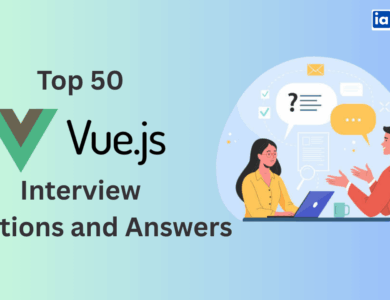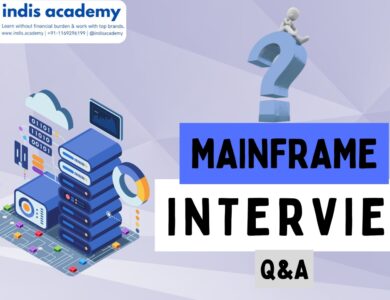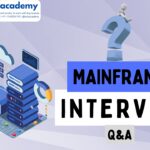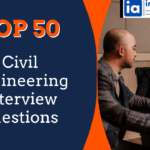100 Most Common Visa Interview Questions and Answers
Prepare for your visa interview with these 100 frequently asked questions and expert answers. Covers US, UK, Canada, Schengen, Australia—student, tourist, and work visa categories.
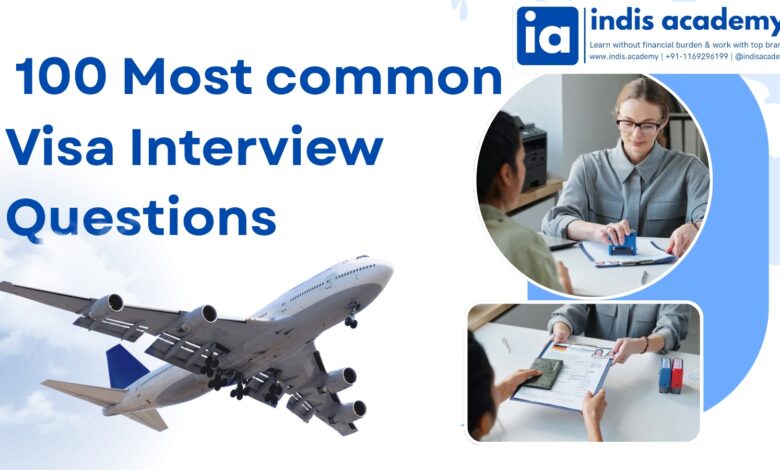
Whether you’re applying for a student visa, a tourist visa, or a work permit, the visa interview is often the final—and most critical—step in the process. It’s your opportunity to prove that your intentions are genuine, your documents are authentic, and your plans are clear. But for many applicants, visa interviews can be nerve-wracking.
The consular officer’s job is to assess whether you meet the requirements of the visa you’re applying for. They’ll evaluate your purpose of travel, financial status, ties to your home country, and ability to comply with the visa regulations of the destination country.
While the exact questions may vary depending on your visa type and embassy, there are common patterns you can prepare for.
In this comprehensive guide, we’ve curated the top 100 visa interview questions and model answers, covering a range of visa categories, including:
-
Student visas (e.g., F1, UK Tier 4, Canada Study)
-
Work visas (e.g., H1B, Skilled Worker, Australian PR)
-
Tourist/visitor visas (e.g., US B1/B2, Schengen, UK, Canada)
-
Plus, country-specific and behavioral scenarios
Whether you’re a first-time applicant or a re-applicant, this guide will help you:
Understand what interviewers really want to hear
Prepare clear and confident responses
Avoid common mistakes that lead to rejections
Let’s dive into the most frequently asked visa interview questions—and how to answer them like a pro.
Also read: Top 40 Accounts Receivable Interview Questions and Answers
General Visa Interview Questions
These questions are commonly asked across all visa types (student, tourist, work, dependent, etc.) to evaluate your identity, intent, and credibility.
Q1. Why do you want to travel to [Country]?
Answer:
“I want to travel to [Country] to [study/work/attend meetings/visit family/explore tourism]. It’s a well-planned trip aligned with my purpose and documentation. I’ve done research and prepared accordingly.”
Q2. Have you ever been to [Country] before?
Answer:
“Yes, I visited in [Year] on a [type of visa] for [purpose].”
OR
“No, this will be my first visit. I’ve researched thoroughly and am well-prepared.”
Q3. Why did you choose this particular country?
Answer:
“Because it offers the best opportunity for my [education/job/travel interest]. The culture, infrastructure, and support systems align with my needs.”
Q4. Who is sponsoring your trip?
Answer:
“My [parent/employer/spouse/self] is sponsoring my trip. I have all the required financial documents to support the sponsorship.”
Q5. Do you have any relatives or friends in this country?
Answer:
“Yes, my [relation] lives in [City]. I’ve provided their details in my application.”
OR
“No, I don’t have any family or friends there.”
Q6. What do you do for a living?
Answer:
“I work as a [designation] at [company name] with [X] years of experience.”
OR (for students)
“I’m currently a student at [college/school name], pursuing [degree/course].”
Q7. Have you ever been refused a visa before?
Answer:
“Yes, in [year], due to [reason]. Since then, I’ve resolved the issue and have stronger documentation now.”
OR
“No, this is my first application / I’ve never faced a visa rejection.”
Q8. How long do you plan to stay in [Country]?
Answer:
“My intended stay is for [X weeks/months/years] as per my itinerary/visa type. I plan to return on [date].”
Q9. How will you support yourself financially during your stay?
Answer:
“I have a budget of [amount] and supporting documents like bank statements, ITRs, and sponsorship letters from [sponsor].”
Q10. Do you plan to return to your home country?
Answer:
“Yes, absolutely. I have strong family, job, and financial ties here. My intention is to return after completing my purpose abroad.”
Q11. What do you know about the visa you are applying for?
Answer:
“This visa allows me to [study/work/travel] legally in [Country] for [X period]. I’m aware of its rules, duration, and limitations.”
Q12. Can you show me your itinerary?
Answer:
“Yes. I’ve prepared a full travel plan including flight bookings (if required), hotel reservations, and a day-by-day travel agenda.”
Q13. What ties do you have to your home country?
Answer:
“I have [a full-time job/family/property/assets/ongoing education] in my home country. These ties ensure I will return after my visit.”
Q14. Are you married? If yes, will your spouse travel with you?
Answer:
“Yes, I am married. My spouse [will/will not] be accompanying me. Their visa application is [included/separate].”
OR
“No, I am not married.”
Q15. What is your highest qualification?
Answer:
“My highest qualification is [degree] in [field] from [university/institute], completed in [year].”
Q16. Do you own any property or assets?
Answer:
“Yes, I have [land/house/car/savings] in my name or family name. I can provide supporting documents if required.”
Q17. What languages do you speak?
Answer:
“I speak [language(s)]. I am also comfortable with [English/local language], which will help me manage during my stay.”
Q18. What are your plans after your visa expires?
Answer:
“I will return to my home country as scheduled and continue with my [job/studies/family/business]. I respect visa laws and won’t overstay.”
Q19. Why should we grant you a visa?
Answer:
“I have a clear, valid reason to visit, strong ties to return, and all the required financial and legal documentation. I fully intend to comply with visa terms.”
Q20. Are you traveling alone or with someone?
Answer:
“I’m traveling [alone/with my spouse/family/team]. Their details are included in my application. We’ve planned the trip together.”
Student Visa Interview Questions and Answers
Q21. Why did you choose this university/college?
Answer:
“I chose [University Name] because of its strong academic reputation, specialized curriculum in my field of interest, positive student reviews, and opportunities for research/internships. I compared multiple universities and found that [University] aligns best with my academic and career goals.”
Q22. What course are you planning to study and why?
Answer:
“I’m enrolling in [Course Name], as it closely matches my career interest in [industry/field]. This course offers practical exposure, industry-relevant modules, and faculty with extensive experience, which will help me build a solid foundation for my future.”
Q23. Why do you want to study in [Country] and not in your home country?
Answer:
“[Country] offers advanced teaching methodologies, globally recognized degrees, and better research opportunities in my chosen field. While my home country has good options, the exposure and international perspective offered by [Country] are unmatched for my career development.”
Q24. How will this course benefit your future career?
Answer:
“The course will equip me with both theoretical knowledge and practical skills. For example, modules like [mention one or two] are directly related to the job roles I aim for. After returning to my home country, I plan to work in [industry/role], where this qualification will give me a significant advantage.”
Q25. Who is funding your education?
Answer:
“My [parents/sponsor/myself] will be funding my education. I have attached all necessary financial documents including bank statements, affidavits of support, and income tax returns to prove we can comfortably afford the tuition and living costs.”
Q26. What is the occupation and income of your sponsor?
Answer:
“My sponsor, [relation], is a [designation] at [company name], earning approximately ₹[amount] annually. Their income is sufficient to cover all my academic and living expenses abroad.”
Q27. Have you applied for any scholarships?
Answer:
“Yes, I applied for [scholarship name] and was awarded [amount] which reduces my financial burden. I’ve also budgeted the remaining amount accordingly.”
OR
“No, I haven’t applied, but I have sufficient funds available without any financial aid.”
Q28. What are your plans after completing your studies?
Answer:
“After completing my course, I plan to return to my home country and work in [industry/role]. I aim to apply the international knowledge and skills I gain to contribute to [mention company/sector] or start my own business aligned with my studies.”
Q29. Do you plan to work while studying?
Answer:
“Yes, but only within the rules of my visa. I may take up part-time, on-campus work (up to [country’s allowed hours]) to gain experience and support my living expenses. However, academics will be my top priority.”
Q30. Why should we grant you a student visa?
Answer:
“I’ve been accepted by a reputed institution, I have a genuine academic purpose, sufficient funds, and strong intentions to return after my education. My academic background, clear goals, and documentation prove that I meet the requirements of a genuine student visa applicant.”
Also read: Top 40 Accounts Receivable Interview Questions and Answers
Q31. Can you tell me about your academic background?
Answer:
“I’ve completed my [latest qualification] in [stream] from [Institution], securing [percentage/CGPA]. I have also participated in [projects/internships/extracurriculars] relevant to the course I’m pursuing abroad.”
Q32. What other universities did you apply to?
Answer:
“I applied to [University A, University B], and I received offers from [mention]. However, I chose [this university] due to its curriculum, ranking, and location.”
Q33. Do you plan to stay in [Country] after graduation?
Answer:
“No. My intention is to return home after completing my course. I have strong ties to my country, and a clear career plan that involves applying my skills here. I fully understand and respect the visa regulations.”
Q34. How will you manage accommodation and living expenses?
Answer:
“I’ve researched my options thoroughly. I plan to live in [university accommodation/private housing] and have budgeted around [amount] monthly. My sponsor has set aside sufficient funds to cover these expenses comfortably.”
Q35. Do you have any gaps in your education?
Answer:
“Yes, I took a break from [year] to [year] due to [health, job, personal reason], but I remained productive during that time through [courses, work experience]. I’ve mentioned this honestly in my application and it doesn’t affect my academic continuity.”
OR
“No, I’ve followed a continuous academic path with no gaps.”
Q36. What subjects will you be studying in your course?
Answer:
“My program includes subjects like [list 3–4 core modules], which are directly aligned with my interests and future career. I’ve reviewed the syllabus in detail and found it highly relevant and industry-focused.”
Q37. Have you taken any language proficiency tests like IELTS or TOEFL?
Answer:
“Yes, I have taken the [IELTS/TOEFL] and scored [overall score]. I meet the university and visa requirements for English proficiency.”
Q38. Do you know the total cost of your education and stay?
Answer:
“Yes. My tuition fee is approximately [amount] per year and my living expenses are estimated at [amount] annually. I have budgeted for the entire duration of my stay and can provide financial proof.”
Q39. How will this international degree help you back in your home country?
Answer:
“This degree will enhance my job prospects significantly. Employers in my home country value foreign-educated professionals, especially in [industry]. I’ll have an edge in both private and public sector roles.”
Q40. How do you plan to overcome cultural and academic differences abroad?
Answer:
“I’m open-minded and adaptive by nature. I’ve already attended cultural orientation programs and researched the academic structure of [country]. I’m confident I can adjust and thrive in the new environment.”
Work Visa Interview Questions and Answers
Q41. What is your job title and role in the company?
Answer:
“My job title is [Your Designation], and I am responsible for [briefly explain your core duties]. This includes working on [projects/technologies/clients], contributing to business goals, and collaborating with cross-functional teams.”
Q42. Can you describe your employer and their business?
Answer:
“Yes. I work at [Company Name], which is a [brief description – e.g., IT services, manufacturing, healthcare] company based in [City/Country]. They have [X] employees and provide services/products in [industry/market].”
Q43. How did you get this job offer?
Answer:
“I applied through [job portal/company website/referral]. I went through multiple interview rounds and received a formal offer after successfully clearing all assessments and discussions.”
Q44. What is your salary or compensation package?
Answer:
“My annual compensation is [currency and amount], which includes [base pay, benefits, bonuses]. I have the offer letter and employment contract with complete breakdowns.”
Q45. Why do you want to work in this country and not your home country?
Answer:
“I want to work in [Country] because it offers better exposure to international markets, advanced technology, and professional growth opportunities. The experience will enrich my skills and benefit my long-term career goals.”
Q46. Do you plan to return to your home country after your work visa expires?
Answer:
“Yes. I understand that my visa is temporary. I plan to return once the project or assignment is complete, as I have strong personal and professional ties to my home country.”
Q47. Are you applying for permanent residency or intending to settle long-term?
Answer:
“At this stage, I’m only focused on working with my current employer under the approved work visa. If any long-term opportunities arise, I’ll consider them legally through the proper immigration channels.”
Q48. How is your job relevant to your past education and experience?
Answer:
“My current role aligns with my degree in [field] and previous work experience in [industry]. For instance, I studied [relevant subject] and applied it while working on [project/technology] at my last job.”
Q49. Can you provide documents related to your job offer and company?
Answer:
“Yes, I have my offer letter, employment contract, sponsor license details (if applicable), and company profile or support letter with me. All documents are signed and verifiable.”
Q50. Will your employer cover your travel or relocation costs?
Answer:
“Yes, the employer has agreed to cover [full/partial] relocation expenses, including [airfare, temporary housing, visa processing, etc.], as stated in the offer letter.”
Q51. What is the duration of your assignment or contract?
Answer:
“The duration is [X months/years], and it’s renewable depending on project continuation and visa regulations.”
Q52. Are you aware of the tax and legal obligations in the destination country?
Answer:
“Yes, I’ve researched the local tax laws, work visa conditions, and healthcare coverage. I’m prepared to comply fully with all legal and regulatory requirements.”
Q53. Are you applying alone or with dependents?
Answer:
“I’m applying [alone/with dependents]. I’ve included all supporting documents for my [spouse/children], and they meet the dependent visa eligibility criteria.”
Q54. Do you plan to switch jobs after reaching the country?
Answer:
“No. I’m committed to working with my current employer as per the job offer and visa terms. I understand that switching jobs without proper authorization would violate visa rules.”
Q55. Can you describe the project or department you’ll be working in?
Answer:
“I’ll be working in the [Department Name] on a project involving [brief summary of project]. It aligns with my skills in [tools/technologies/processes], and I’ll be reporting to [Manager/Team Lead].”
Q56. How does your role contribute to your employer’s goals?
Answer:
“My role supports [cost optimization/product development/client delivery]. I contribute by [skills or outcomes], helping the company improve productivity, meet deadlines, and deliver better results.”
Q57. Have you worked with international clients or teams before?
Answer:
“Yes, I’ve previously worked with clients from [Country/Region] in [project/domain]. This experience helped me understand different work cultures and communication standards.”
Q58. Do you have experience with remote collaboration or global time zones?
Answer:
“Yes. In my current role, I attend daily stand-ups and meetings with teams in [countries/time zones]. I’m comfortable working across time differences and using tools like Zoom, Jira, and Slack.”
Q59. What are your long-term career goals?
Answer:
“My goal is to gain international experience, build expertise in [specialization], and eventually take on leadership roles. This role fits perfectly into that plan and offers the right exposure.”
Q60. Why should we approve your work visa application?
Answer:
“I meet all the eligibility criteria, have a valid job offer from a reputed employer, and have no intention of violating any immigration rules. I bring skills that are in demand and am fully prepared to contribute responsibly and legally.”
Tourist/Visitor Visa Interview Questions and Answers
These are essential for B1/B2 (USA), Schengen, UK Visit Visa, Canada Visitor Visa, and similar short-term travel visa categories.
Q61. What is the purpose of your visit?
Answer:
“I plan to visit [Country] for tourism and sightseeing. I’ve created a complete itinerary including places like [landmarks], and my trip is purely recreational.”
Q62. How long do you plan to stay?
Answer:
“I plan to stay for [X days/weeks], from [start date] to [return date], as per my submitted itinerary and flight reservations.”
Q63. Who will be traveling with you?
Answer:
“I’m traveling [alone/with my spouse/family/friend]. All accompanying travelers have submitted individual visa applications and necessary documents.”
Q64. Do you have travel insurance?
Answer:
“Yes, I’ve purchased comprehensive travel insurance that covers medical emergencies, trip cancellations, and personal liability for the entire duration of my trip.”
Q65. Where will you stay during your visit?
Answer:
“I have made confirmed bookings at [hotel names] in [cities]. I’ve included all booking receipts in my documentation.”
Q66. How will you fund your trip?
Answer:
“I will fund the trip myself through savings and income. I’ve attached my bank statements, income tax returns, and payslips for the past 6 months to verify financial stability.”
Q67. What ties do you have to your home country?
Answer:
“I have strong ties including full-time employment, family, property ownership, and ongoing financial commitments. I intend to return after my short visit.”
Q68. Have you ever traveled internationally before?
Answer:
“Yes, I’ve visited [Countries] for [tourism/business/study]. I have followed all visa terms in the past.”
OR
“No, this will be my first international trip, but I’m well-informed and have prepared responsibly.”
Q69. What places do you intend to visit in the country?
Answer:
“I plan to visit [list major cities or tourist spots like Paris, Rome, New York, etc.], as outlined in my itinerary. My travel plan is realistic and manageable within my stay duration.”
Q70. Will you visit any friends or family?
Answer:
“Yes, I plan to visit my [relation], who lives in [City]. I’ve included their invitation letter, ID proof, and address. They are hosting me during part of my stay.”
OR
“No, I don’t have any personal contacts there. It’s a solo tourism trip.”
Q71. What does your daily itinerary look like?
Answer:
“I have prepared a detailed itinerary covering sightseeing, city tours, museums, and cultural experiences. Each day is balanced and supported with hotel and transport bookings.”
Q72. What do you do for a living?
Answer:
“I work as a [designation] at [company name], and I’ve been employed there for [X years]. I’ve received approved leave for the trip, which is also documented in my application.”
Q73. Can you show your return flight ticket?
Answer:
“Yes, I have a return ticket booked for [date]. It’s included in my travel itinerary and confirmed by the airline.”
Q74. Why are you visiting now and not later?
Answer:
“This time fits perfectly with my work schedule and personal commitments. I’ve received approved time off, and the weather/tour season is ideal.”
Q75. Do you plan to work or study during your visit?
Answer:
“No, absolutely not. I understand that a tourist visa does not permit working or studying. I intend to fully comply with visa conditions.”
Q76. Do you have relatives in this country? Will you stay with them?
Answer:
“Yes, my [relation] lives there, and I’ll be staying with them for [X days]. They’ve provided an invitation letter and are financially capable to host me.”
OR
“No, I don’t have relatives there. I’ve booked a hotel.”
Q77. Do you plan to visit other countries on this trip?
Answer:
“Yes, I plan to visit [country names] as part of a multi-country Schengen itinerary. I’ve arranged accommodations and intra-Europe travel accordingly.”
OR
“No, my travel is limited to [one country] this time.”
Q78. What is your total budget for this trip?
Answer:
“My estimated budget is [currency and amount], covering flights, accommodation, food, and sightseeing. I have sufficient personal funds to support all expenses.”
Q79. Will you overstay your visa?
Answer:
“No. I fully respect immigration laws. I have a stable job, family, and responsibilities in my home country. I will return before my visa expires.”
Q80. Why should we approve your tourist visa?
Answer:
“I have a clear travel purpose, enough funds, strong ties to my home country, and all supporting documents in place. I am a genuine traveler who will comply with all visa conditions.”
Country-Specific Visa Interview Questions and Answers
These questions are based on visa requirements and officer expectations from specific destinations like the USA, UK, Canada, Australia, and Schengen countries.
Q81. [USA] What is SEVIS and what is your SEVIS ID?
Answer:
“SEVIS stands for Student and Exchange Visitor Information System. It tracks F1/M1 visa holders. My SEVIS ID is [NXXXXXXXXX], and I’ve paid the SEVIS fee. The confirmation receipt is in my documents.”
Q82. [USA] What is the difference between B1 and B2 visa?
Answer:
“B1 is for business visits—like conferences, meetings, or training. B2 is for tourism, family visits, or medical purposes. I am applying for a [B1/B2] based on my travel purpose.”
Q83. [UK] What is your CAS number and how did you receive it?
Answer:
“My CAS (Confirmation of Acceptance for Studies) number is [XXXXXXXXX]. I received it from my UK university after confirming my admission and fulfilling financial and documentation requirements.”
Q84. [UK] How much money are you required to show for your UK student visa?
Answer:
“For London, £1,334 per month for 9 months (£12,006), plus tuition fees. For outside London, it’s £1,023 per month. I’ve arranged the required amount and held it for 28 days as per UKVI rules.”
Q85. [Canada] What is a GIC and why is it important?
Answer:
“GIC stands for Guaranteed Investment Certificate. It is a financial requirement under the Student Direct Stream (SDS). I’ve deposited CA$10,000 with a Canadian bank and received the GIC certificate.”
Q86. [Canada] What is the SDS category?
Answer:
“SDS (Student Direct Stream) is a fast-track visa process for eligible students from countries like India, China, and the Philippines. It requires upfront tuition fee payment, GIC, and IELTS scores.”
Q87. [Australia] What is the subclass of the visa you’re applying for?
Answer:
“I’m applying for Subclass 500 – the student visa. It allows me to stay during my course, work part-time, and apply for dependent visas if eligible.”
Q88. [Australia] Have you completed the Genuine Temporary Entrant (GTE) statement?
Answer:
“Yes, I have written and submitted the GTE statement explaining my academic background, reasons for choosing Australia, financial plan, and intent to return home after completing my studies.”
Q89. [Germany] Do you have a blocked account?
Answer:
“Yes, I’ve opened a blocked account with [Deutsche Bank/Fintiba/Expatrio] with €11,208 deposited for 12 months as required for student visa purposes.”
Q90. [Schengen] Why are you applying through this country’s consulate?
Answer:
“I am spending the most time in [Schengen country] during my trip, so I’m applying through their consulate as per Schengen rules.”
Q91. [Schengen] What documents have you submitted for proof of accommodation?
Answer:
“I’ve submitted confirmed hotel bookings, AirBnB receipts, or a sponsor’s invitation letter with address proof, depending on the city I’ll be staying in.”
Q92. [USA] Can you name any US laws or visa rules you are aware of?
Answer:
“Yes, I know that an F1 visa requires full-time enrollment and you cannot work off-campus in the first year unless approved. Overstaying a visa may lead to bans or removal proceedings.”
Q93. [UK] How do you plan to pay the Immigration Health Surcharge (IHS)?
Answer:
“I will pay the IHS fee during the visa application process using my international debit/credit card as required.”
Q94. [Canada] Do you know the rules about working while studying?
Answer:
“Yes, international students can work up to 20 hours per week during academic sessions and full-time during breaks. I will comply with these regulations strictly.”
Q95. [Australia] Do you know about OSHC?
Answer:
“Yes. Overseas Student Health Cover (OSHC) is mandatory for all international students in Australia. I’ve purchased OSHC from [Provider] for the full duration of my visa.”
Behavioral & Situational Visa Interview Questions
These questions test your intentions, integrity, and preparedness in real-life or hypothetical scenarios that visa officers often consider.
Q96. What will you do if your visa is denied?
Answer:
“If my visa is denied, I will review the reasons, correct any issues, and reapply with better documentation. I respect the decision of the consulate and will follow all legal procedures.”
Q97. What will you do if you run out of funds while abroad?
Answer:
“I’ve carefully planned my finances and created a buffer for emergencies. However, if such a situation arises, I will reach out to my family/sponsor for support and inform the authorities if required. I will not work illegally or violate any rules.”
Q98. If someone offered you a job illegally while on a tourist/student visa, what would you do?
Answer:
“I would decline the offer immediately. I understand that working without authorization is a serious violation that can lead to visa cancellation and legal trouble. I intend to follow all visa rules strictly.”
Q99. How would you handle an emergency situation in a foreign country?
Answer:
“I would first ensure personal safety, then contact local emergency services or my country’s embassy. I also have travel insurance/health cover for unexpected situations. I would follow legal and procedural guidance provided by authorities.”
Q100. What makes you a trustworthy visa applicant?
Answer:
“I have a genuine purpose, strong home ties, and a full understanding of visa obligations. I’ve provided transparent documents and have a track record of respecting laws and responsibilities. I’m fully committed to returning after completing my stated purpose.”
Conclusion
Visa interviews are not just about documents—they’re about demonstrating clarity, honesty, and preparedness. Whether you’re applying for a study visa, work permit, or tourist entry, your confidence, intent, and alignment with the visa rules make all the difference.
This guide of 100 Visa Interview Questions and Answers is your all-in-one preparation kit to help you approach the consulate confidently—and walk out with an approval.


